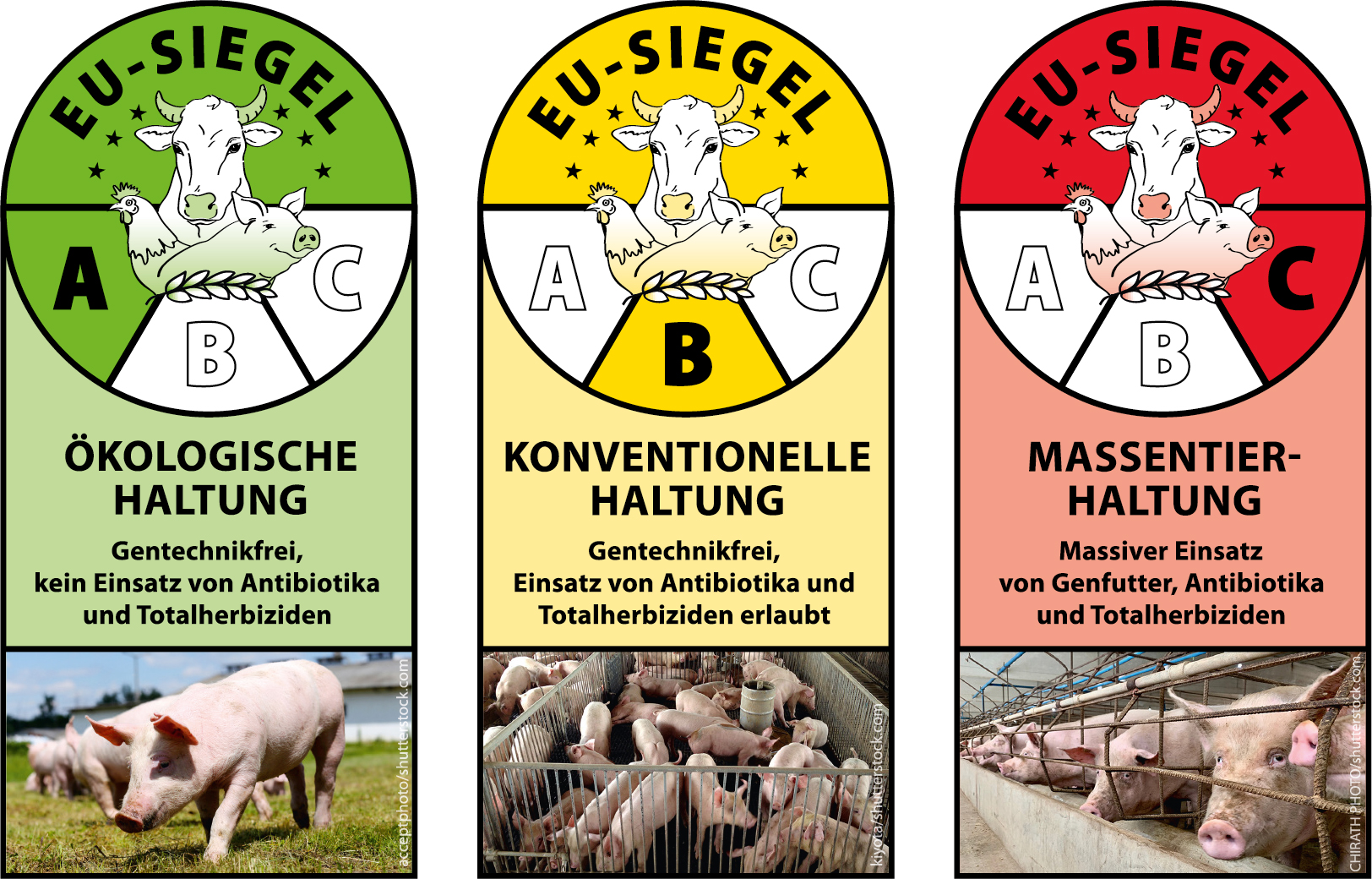
11 Juli ÖDP stands for EU-binding labeling of meat products
MEP Manuela Ripa criticizes the key points paper by Cem Özdemir
(Brussels, 11.07.2022) „For years, me and my party, the Ecological Democratic Party (ÖDP), have been calling for the introduction of a mandatory animal welfare label that would include a photo with the representation of the husbandry conditions. Together with Klaus Buchner, my predecessor in the EU Parliament, I have developed the concept of an EU-wide label, which I am promoting as part of my campaign `Agrarwende Jetzt!“ (www.agrarwende-jetzt.de).“
Commenting on the German government’s plan to introduce an animal welfare label, Ripa notes: „In general, I welcome the planned introduction of mandatory animal welfare labeling. However, the ambitions of the German government do not go far enough for me. We need a clear and well-thought-out label on this important issue. The European Commission is also considering EU-wide animal labeling, and Germany should set a good example here. The problem here is that the details in the key points paper of the Federal Minister for Food and Agriculture, Cem Özdemir, are disappointing. The proposals are too unambitious to significantly improve animal husbandry in Germany.“
For the time being, the label will only apply to pork, although the conditions under which other farm animals such as chickens and cattle are kept often do not meet current animal welfare standards. Other animal species are supposed to be added later, but it is not clear yet when exactly.
The Minister’s proposal also does not go far enough in terms of other criteria. For example, it should not apply to processed meat and so far it only refers to the conditions under which animals are kept. „My concept foresees that, first of all, it should be clearly shown on meat packaging how the animals are kept. Pictures have an effect and could strongly influence consumers’ behavior! The type of food or the use of antibiotics in animal husbandry must also be taken into account when it comes to labeling. In addition, we need information on whether or not the food for the animals comes from genetically engineered monocultures with the use of total herbicides. In contrast to the five grades that the Minister has in mind, my concept also consists of only three levels. This is easier to understand for consumers,“ says the MEP.
The mass, preventive administration of antibiotics in animal husbandry causes a rise of multi-resistant germs that already cost the lives of one million people worldwide every year – and the trend is rising. Ripa: „Animal welfare labeling must also provide information on this so that consumers are informed transparently and can decide for themselves what they want on their plates.“
Manuela Ripa also finds the Minister’s proposal of a five-level label problematic. Thus, of all things, the husbandry conditions with the lowest standards are to be labeled as „husbandry level 1“ and „husbandry level 2“, but the one with the highest standard as „husbandry level 5“. This is highly confusing for consumers. „Enclosure type 1 (stable) and enclosure type 2 (stable and space) are not in line with animal welfare standards and actually, should be banned,“ says the ÖDP politician. „In addition, the number 1 usually stands for the highest quality, not the lowest.“
„For all these reasons, I can unfortunately only give to Minister Özdemir and his key point proposal on animal welfare grade „adequate“ (grade 4-)“. I invite the Minister to take a look at my concept of a mandatory seal, which, moreover, is to apply not only nationally but at the EU level. The animal welfare label I have proposed is clear and transparent, includes all animal species, and provides a representation with a picture of the respective husbandry methods. Germany must therefore lobby the European Council to decide on meaningful and mandatory; EU-wide animal welfare labeling in order to prevent livestock farming from relocating to those countries where there is no label in the future. We need an EU-wide seal and no misleading by alleged animal welfare,“ concludes the MEP.

